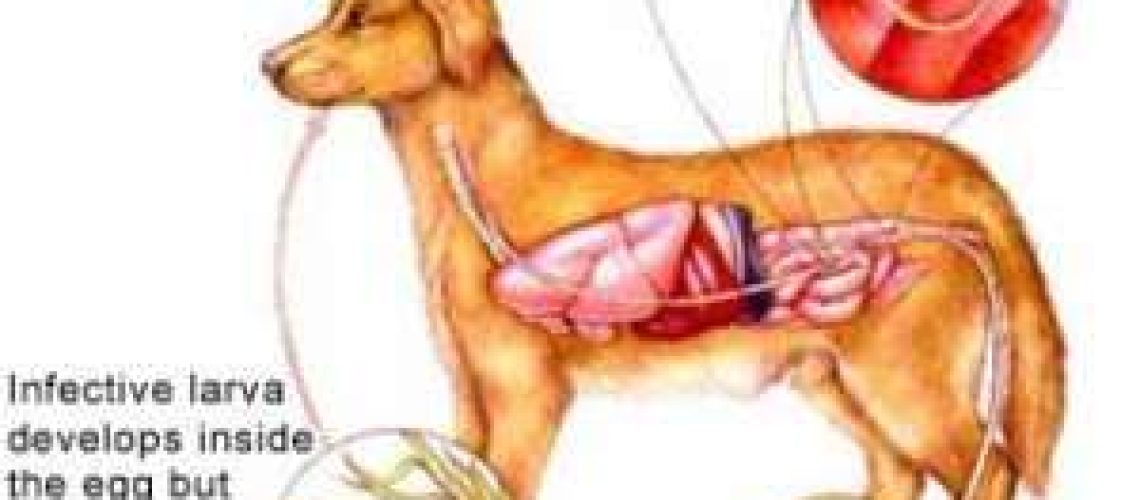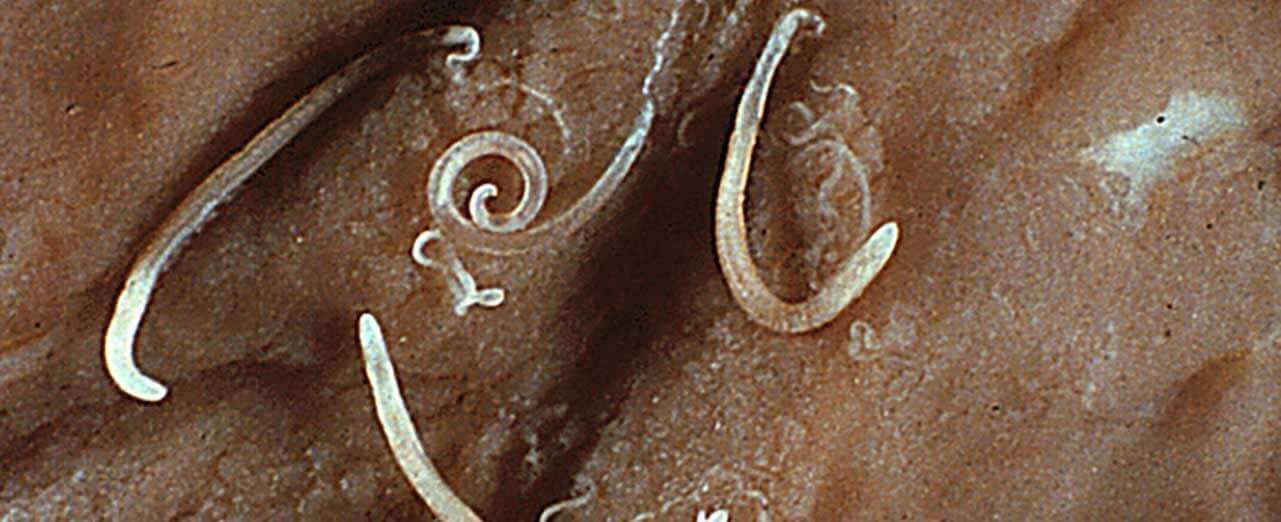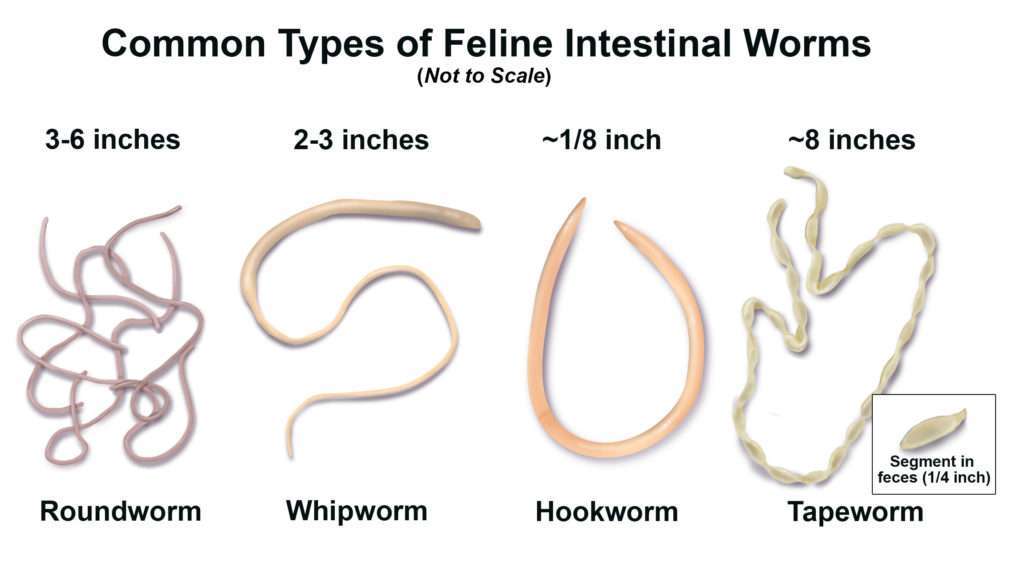Key Takeaways:
- Whipworms are a common intestinal parasite in dogs, especially in warm and humid climates.
- They can cause diarrhea, weight loss, and anemia in infected dogs.
- Regular fecal testing and deworming are essential to prevent whipworm infestations.
- Whipworm eggs are very resistant and can survive in the environment for years.
- Cleaning and disinfecting your dog's living area can help reduce the risk of whipworm infections.
Are you a dog lover? If so, then understanding the topic of whipworms in dogs is essential knowledge that can greatly benefit both you and your furry friends. These tiny parasites may be invisible to the naked eye, but their impact on your dog's health can be significant. By delving into this subject, you'll gain valuable insights into how to protect your canine companions from these pesky invaders. So, let's embark on a journey to uncover the hidden dangers of whipworms and discover how we can safeguard our beloved pets. Get ready to become an expert in canine health and well-being!
What are whipworms and how do they affect dogs?
Whipworms are a type of intestinal parasite that can infect dogs. They are small, thread-like worms that live in the large intestine of dogs and feed on their blood. When a dog becomes infected with whipworms, it can lead to various health issues.
Whipworm infections can cause diarrhea, weight loss, anemia, and in severe cases, even death. The worms attach themselves to the lining of the intestine and suck blood, which can weaken the dog's immune system and make them more susceptible to other illnesses.
How do whipworms affect dogs?
The presence of whipworms in a dog's intestines can lead to inflammation and irritation. This can result in chronic diarrhea, which may contain mucus or blood. The constant loss of fluids through diarrhea can cause dehydration and electrolyte imbalances.
In severe cases, whipworm infections can cause anemia due to the parasites feeding on the dog's blood. Anemic dogs may appear weak, lethargic, and have pale gums.
Common symptoms of whipworm infection in dogs:
- Chronic diarrhea
- Bloody or mucus-filled stools
- Weight loss
- Anemia (pale gums)
- Lethargy
How do dogs get whipworms and can they spread to other animals or humans?
Dogs become infected with whipworms by ingesting the eggs present in contaminated soil or feces. These eggs are very resilient and can survive for long periods in the environment. Once inside the dog's body, the eggs hatch and develop into adult worms in the large intestine.
Whipworms are specific to dogs and cannot directly infect humans or other animals. However, the eggs shed in a dog's feces can contaminate the environment, posing a potential risk to other dogs. Humans can also inadvertently ingest whipworm eggs if proper hygiene practices are not followed after handling contaminated soil or feces.
How do dogs get infected with whipworms?
Dogs can become infected with whipworms by:
- Ingesting whipworm eggs from contaminated soil or feces
- Coming into contact with surfaces or objects contaminated with whipworm eggs
- Being in close proximity to infected dogs
Preventing the spread of whipworms:
- Clean up dog feces promptly and dispose of it properly
- Avoid allowing dogs to come into contact with potentially contaminated soil
- Practice good personal hygiene, such as washing hands thoroughly after handling dogs or cleaning up after them
- Regularly deworm dogs, especially those at higher risk of exposure (e.g., outdoor dogs)
Common symptoms of whipworm infection in dogs
Whipworm infection, also known as trichuriasis, is a common parasitic disease that affects dogs. The symptoms of whipworm infection can vary depending on the severity of the infestation. Some common signs to look out for include diarrhea, which may contain blood or mucus, weight loss, anemia, and dehydration. Dogs with whipworms may also experience abdominal pain and have a decreased appetite.
Diarrhea:
One of the most noticeable symptoms of whipworm infection in dogs is diarrhea. The stool may be loose and watery, and in severe cases, it may contain blood or mucus. This can lead to dehydration if not addressed promptly.
Weight loss:
Another symptom of whipworm infection is weight loss. Dogs infected with whipworms may have difficulty maintaining their body weight despite having a normal appetite. This is because the worms feed on the nutrients present in the dog's intestines, depriving them of essential nutrients.
Anemia:
In some cases, whipworm infestations can lead to anemia in dogs. Anemia occurs when there is a decrease in red blood cells or hemoglobin levels in the bloodstream. This can cause weakness, fatigue, pale gums, and even collapse if left untreated.
It is important to note that these symptoms can also be indicative of other health issues in dogs. Therefore, if you notice any of these signs in your furry friend, it is crucial to consult a veterinarian for an accurate diagnosis.
Veterinary diagnosis and importance of treating whipworms in dogs
Proper diagnosis by a veterinarian is crucial for identifying and treating whipworm infections in dogs. A veterinarian will perform a thorough physical examination and may recommend additional tests such as fecal flotation or PCR (polymerase chain reaction) testing to confirm the presence of whipworm eggs or DNA.
Fecal flotation:
Fecal flotation is a common diagnostic test used to detect whipworm eggs in a dog's stool. A small sample of feces is mixed with a special solution and then examined under a microscope. If whipworm eggs are present, they will float to the surface, allowing the veterinarian to identify them.
PCR testing:
PCR testing is a more advanced method of diagnosing whipworm infections. It involves amplifying and detecting the DNA of whipworms in a dog's fecal sample. This technique provides highly accurate results and can detect even low levels of infection.
Treating whipworms in dogs is essential for their overall health and well-being. If left untreated, whipworm infections can lead to severe complications such as chronic diarrhea, weight loss, anemia, and even death in severe cases. Additionally, infected dogs can serve as a source of contamination for other animals and humans.
The treatment for whipworms typically involves deworming medications prescribed by a veterinarian. These medications are designed to kill adult worms and prevent further infestations. It is important to follow the veterinarian's instructions regarding dosage and administration to ensure effective treatment.
Home remedies and preventive measures for protecting dogs from whipworms
While professional veterinary care is crucial for treating whipworm infections, there are also some home remedies and preventive measures that can help protect dogs from these parasites.
Clean living environment:
Maintaining a clean living environment for your dog is essential in preventing whipworm infections. Regularly clean your dog's bedding, toys, and living areas to minimize the risk of exposure to contaminated feces.
Proper hygiene practices:
Practicing good hygiene not only protects your dog but also reduces the chances of whipworm transmission to humans. Wash your hands thoroughly after handling your dog's feces and before eating or preparing food.
Regular deworming:
Regular deworming is an important preventive measure for protecting dogs from whipworms. Consult with your veterinarian to develop a deworming schedule suitable for your dog's age, lifestyle, and risk factors.
Avoiding contact with contaminated soil:
Whipworm eggs can survive in the environment for long periods, making it important to avoid areas where dogs may come into contact with contaminated soil. Restrict access to areas with high concentrations of dog feces, such as public parks or communal dog areas.
By implementing these home remedies and preventive measures, you can help reduce the risk of whipworm infections in your furry friend and promote their overall health and well-being. Remember to consult with a veterinarian for personalized advice based on your dog's specific needs.
Dangers of whipworm infections for dogs and potential complications if left untreated
Whipworm infections can pose significant dangers to dogs if left untreated. These parasites can cause various complications that can severely impact a dog's health and quality of life.
Chronic diarrhea:
One of the most common complications of whipworm infections is chronic diarrhea. The constant inflammation caused by the presence of whipworms in the intestines can lead to persistent loose stools, which can result in dehydration, nutrient deficiencies, and weight loss.
Anemia:
Severe whipworm infestations can lead to anemia in dogs. Anemia occurs when there is a decrease in red blood cells or hemoglobin levels in the bloodstream. This condition can cause weakness, fatigue, pale gums, and even collapse if left untreated.
Intestinal damage:
Whipworms attach themselves to the lining of the dog's intestines and feed on blood, causing damage to the intestinal walls. Prolonged infestations can lead to inflammation, ulcers, and even perforation of the intestines, which can be life-threatening.
Secondary infections:
Whipworm infections weaken a dog's immune system, making them more susceptible to secondary bacterial or viral infections. These additional infections can further compromise the dog's health and prolong their recovery time.
It is crucial to seek veterinary treatment as soon as whipworm infection is suspected in order to prevent these potential complications. Early diagnosis and prompt intervention can significantly improve a dog's prognosis and minimize the risks associated with whipworm infestations.
Treatment recommendations for whipworms in dogs and expected recovery time
Treating whipworms in dogs involves a comprehensive approach that includes deworming medications, environmental management, and preventive measures. The expected recovery time may vary depending on the severity of the infestation and individual factors.
Deworming medications:
Veterinarians typically prescribe specific deworming medications that are effective against whipworms. These medications are designed to kill adult worms and prevent further infestations. It is important to follow the veterinarian's instructions regarding dosage and administration for optimal results.
Environmental management:
In addition to medication, it is essential to manage the dog's environment to prevent reinfestation. Thoroughly clean your dog's living areas, dispose of feces properly, and limit access to areas with high concentrations of whipworm eggs.
Preventive measures:
To prevent future whipworm infestations, regular deworming should be incorporated into your dog's healthcare routine. Consult with your veterinarian for a personalized deworming schedule based on your dog's age, lifestyle, and risk factors.
The recovery time for dogs with whipworm infections can vary. In most cases, dogs show improvement within a few days to weeks after starting treatment. However, it is important to complete the full course of medication as prescribed by the veterinarian to ensure complete elimination of the parasites.
Regular follow-up visits with the veterinarian may be necessary to monitor the dog's progress and adjust the treatment plan if needed. By following the recommended treatment recommendations and providing proper care, you can help your furry friend recover from whipworm infection and prevent future infestations.
In conclusion, whipworms are a common parasite that can affect dogs. It's important for dog owners to be aware of the symptoms and take preventive measures to keep their furry friends healthy.
How did my dog get whipworms?
The whipworm is one of the four most prevalent intestinal parasites found in dogs. Whipworms live in the cecum, which is located in the area where the small intestine and large intestine meet inside the dog's body. Dogs contract whipworms by ingesting whipworm eggs that are capable of causing infection, which can be found in soil or other matter that may contain dog feces.
Can a dog survive with whipworms?
Is it possible for whipworm to cause the death of a dog? In serious situations where there is a large number of whipworms, infestations can be lethal for dogs. It is crucial to regularly deworm your dog using a reliable product like NexGard SPECTRA® or ParaGard® that effectively targets whipworms.
How long does it take to get rid of whipworms in dogs?
The most common treatment for whipworm in dogs is Fenbendazole. This medication is administered once daily for three consecutive days, repeated again after three weeks, and then once more after three months. This treatment schedule ensures that the medication effectively targets the whipworms throughout their lengthy reproductive cycle, which can last between 70 to 94 days.
What do whipworms look like in dog poop?
There are four major types of worms commonly found in dog feces: hookworms, whipworms, roundworms, and tapeworms. Hookworms are small worms with hook-shaped mouthparts. Whipworms resemble pieces of thread that are larger at one end. Roundworms have a spaghetti-like appearance and can grow to several inches in length.
Does dewormer get rid of whipworms?
There are various medications commonly used to treat whipworms, such as febantel, fenbendazole, milbemycin, moxidectin, and oxantel. These medications have been proven to be effective.
Are whipworms hard to get rid of?
With the appropriate medication and necessary supportive care, it is highly probable that your dog will fully recover. However, managing whipworms can be challenging. The extended development cycle of whipworms means that treatment can be a lengthy process, and whipworm eggs can persist in the environment for up to five years given the right conditions.

















